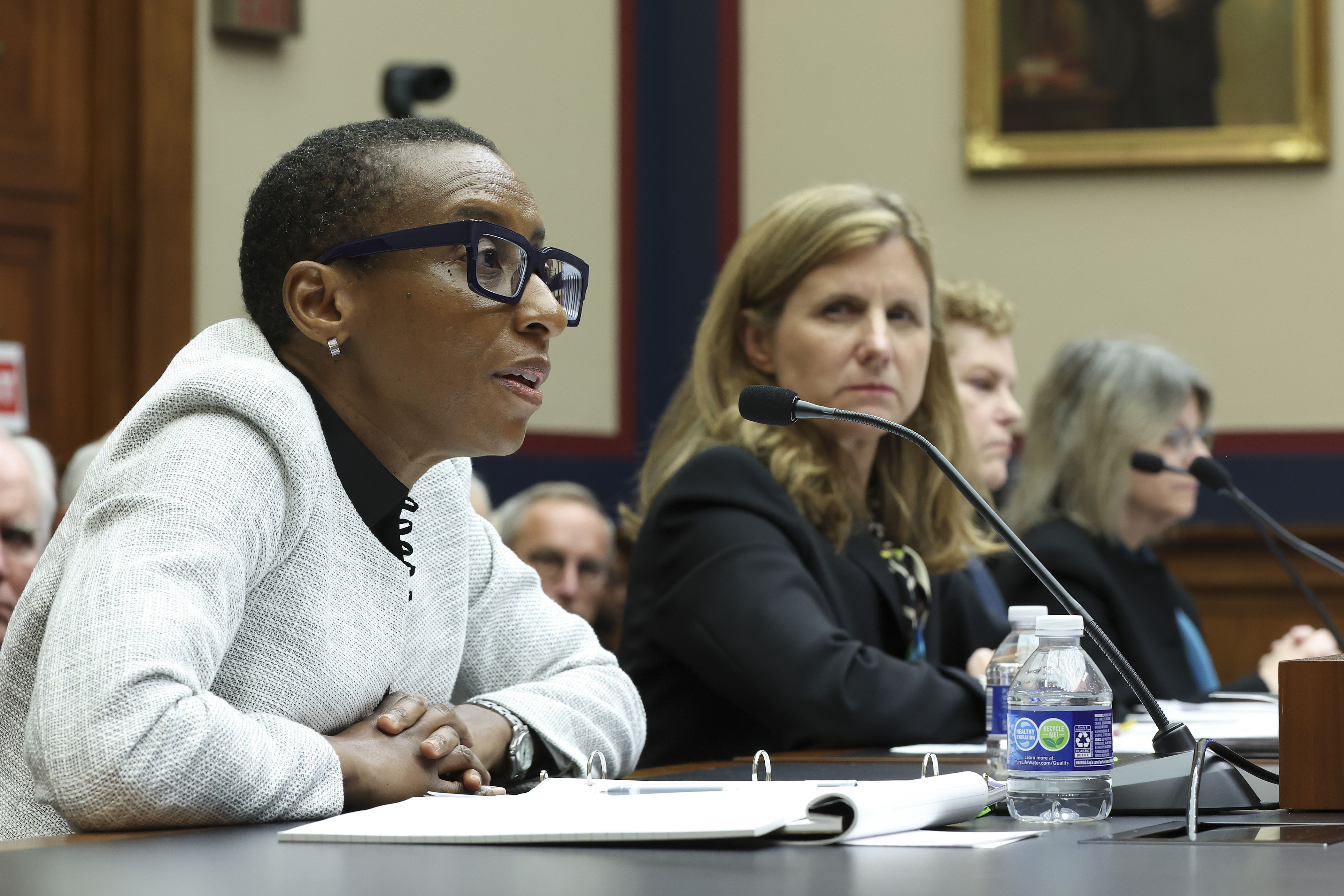
After Harvard and Penn resignations, who wants to be a college president?
As chancellor of the University of North Carolina at Chapel Hill, on any given day Kevin M. Guskiewicz was reporting to at least a dozen important constituencies on campus. He used to tell people if he could keep 70 percent of the people happy 70 percent of the time, he’d consider it a victory.
But with all the challenges our society has been through in the last five years, he said half-jokingly the bar for success might have slipped — 50-50, or 40-40?
And his next job could be even harder. He’s leaving North Carolina on Friday to lead Michigan State University — as its sixth president in six years. His experience in Chapel Hill, and the leadership turmoil in East Lansing, are examples of the hurdles university presidents face on numerous fronts at a time when public confidence in colleges has been diminishing.
The recent resignations of the presidents of Harvard University and the University of Pennsylvania, following their testimony at a blistering congressional hearing on campus antisemitism, was a highly visible symbol of the pressure on top college leaders. Their departures had some asking: Has being a college president become an impossible job?
Colleges and universities have long been central to American aspirations and ideals and have drawn students from around the globe. And for generations, their presidencies have been highly respected, coveted and well-compensated roles, leading institutions that change lives, spur discoveries and shape our understanding of the world. But a combination of political, societal, financial and other pressures have complicated the expectations for leaders of academic institutions in ways that many are finding difficult to navigate. Those challenges are contributing to higher turnover and shorter tenures, as presidents burn out, fall short — or become targets.
“There’s no question that people are thinking twice now about whether they want to be college presidents,” said Ted Mitchell, the president of the American Council on Education (ACE) and a former president of Occidental College.
Whereas presidents spent an average of 8.5 years in their position in 2006, these days many have been in their role for less than six years, according to a 2023 ACE study. What’s more, over half of the presidents surveyed planned to step down within the next five years, many with no interest in seeking some other college’s top job.
Last month, after the Oct. 7 Hamas attack and ensuing Israel-Gaza war set off weeks of protests and turmoil at colleges across the country, a House committee summoned three university presidents to answer questions about why they had not done more to combat antisemitism on their campuses.
Penn president Liz Magill, Harvard President Claudine Gay, and Sally Kornbluth, the president of MIT, generated outrage when they declined to say directly that calls for the genocide of Jews violated their universities’ codes of conduct. The presidents spoke about freedom of expression and the legal standards that governed their policies, but the responses struck many as tone-deaf and lacking empathy.
Magill resigned days after the Dec. 5 hearing amid intense pressure from donors and others. Gay, who also faced allegations of plagiarism and announced corrections to some papers, resigned last week. Politicians and activists continue to demand Kornbluth’s ouster, though the university’s board has stood by her.
Resignation at Harvard latest but not last salvo in GOP war on colleges
Rep. Virginia Foxx (R-N.C.), chair of the House Education and the Workforce Committee, said in a recent statement that there had been a “hostile takeover of postsecondary education by political activists, woke faculty, and partisan administrators,” that needed to be corrected.
“If I were president of a university — yecccchhhhh,” Jennifer Hochschild, a professor of government and African and African American studies at Harvard, said last week after Gay resigned. “I wouldn’t get out of bed this morning!”
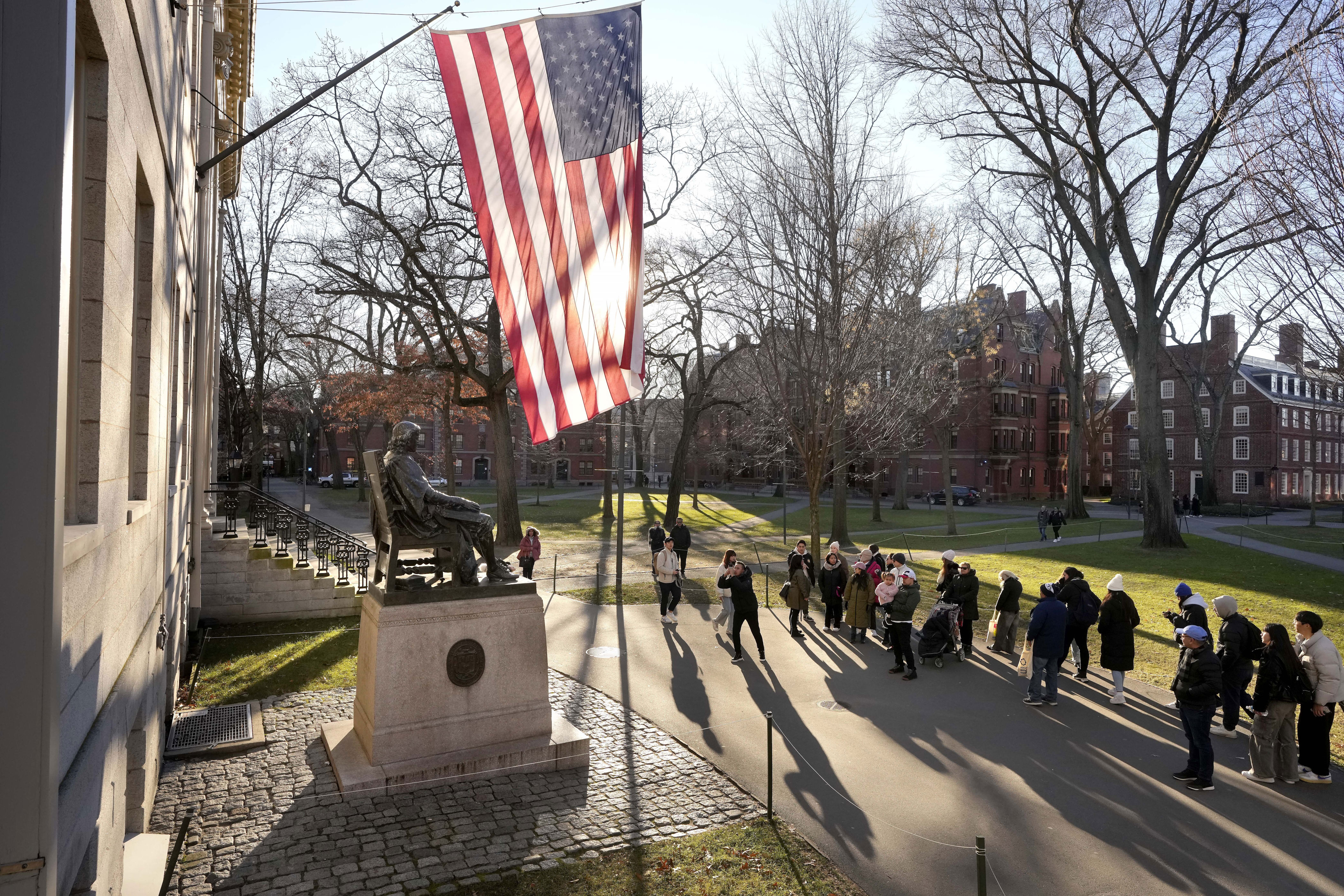
People gather near a John Harvard statue on the campus of Harvard University in Cambridge, Mass.
To be sure, it’s not just external pressures taking out presidents.
Last month, a Wisconsin chancellor was fired after the revelation of sexually explicit videos he had filmed with his wife. In 2016, the president of a small private college in Maryland resigned after advising some professors not to think of struggling freshmen as cuddly bunnies, saying, “You just have to drown the bunnies … put a Glock to their heads.” Last year, the University of Michigan fired its longtime president after an investigation concluded he had had inappropriate interactions with a subordinate.
But for some, the resignations at Penn and Harvard are a stark symbol of a larger shift.
College presidents in recent years have been competing for an ever-shrinking pool of students, while trying to lead their institutions through the lingering impact of the pandemic, the uncertainty of a post-affirmative action era and political polarization.
Political polarization is sorting colleges into red and blue schools
The skills sought for the role are expanding. While presidents typically rose through the academic ranks, now there are many who had been leaders in other areas, such as politics or nonprofit organizations, before taking office. Boards want a leader with good communication and fundraising skills, financial acumen, an entrepreneurial mind-set, not just stellar academic credentials. Keen political instincts are seen as even more indispensable than ever.
Some schools reflect the increased demands in the compensation they offer. Salaries for presidents at public flagship schools in 2022 ranged from a few hundred thousand to nearly $1.5 million, according to Judith Wilde, research professor at the Schar School of Policy and Government at George Mason University, an expert on college presidencies who analyzed salary data gathered by the Chronicle of Higher Education. Since then, they have risen significantly, she said, with well-known large public universities paying presidents salaries of $1 million or more.
Candidates are opting out of some presidential searches because of the political environment, said Zachary A. Smith, executive partner in the education practice of WittKieffer, an executive search firm. Publicized tensions with state lawmakers and board members or highly politicized campus culture are giving some university leaders pause.
“People are taking a little bit longer look at whether they want to jump into the furnace and operate in environments that are not necessarily conducive for their success or their institution’s success,” Smith said.
William Funk, founder of higher-education executive search firm R. William Funk & Associates, said presidential candidates are far more cautious, and scrutinizing every vacancy that crosses their desks. They want to know more about how the college’s board operates, how the last president fared and whether they are stepping into a combustible situation.
Roderick McDavis, managing principal and chief executive of AGB Search, said while there are still plenty of people who want the jobs, he thinks tenures are shorter because the role is so much more stressful. He was president of Ohio University from 2004 to 2017 and while it was rewarding, it became increasingly all-consuming, he said. “There’s literally never any downtime.”
In addition to intense politicization of higher education in some areas, the coronavirus pandemic, which led to enrollment drops and subsequent financial problems on some campuses, have also added to the pressure.
“It has always been a 24/7 job,” said Mitchell, of ACE. “There have always been multiple constituencies. But what seems to have happened over the last few years is that the volume dial for all of those constituencies has turned up.”
Parents are more apt to ring up the president with complaints. Students make demands. Alumni are increasingly vocal. And donors — as was vividly illustrated at both Penn and Harvard — don’t hesitate to stop payments when they’re angry.
At the same time, social media can amplify and accelerate outrage, dramatically raising the stakes for any awkward remark or bungled institutional statement. At many schools this fall, presidents issued multiple messages to their campuses after Oct. 7, clarifying and re-clarifying.
At colleges, violence in Israel and Gaza ignites a war of words
University of New Orleans historian Lauren Lassabe Shepherd said the expectation that college presidents must publicly weigh in on student conduct is a relatively recent development.
The author of “Resistance From the Right: Conservatives and the Campus Wars in Modern America,” she said when political movements roiled college campuses in the 1960s, administrators largely remained behind the scenes. That has changed as conservatives ramp up their fight against higher education.
“We’ve seen over 100 years of far-right activists waging war against institutions for being elitist or for challenging traditional hierarchies that benefit them,” Lassabe Shepherd said. “They’re using higher education as a stand-in.”
When there’s a heated debate in the broader culture, Mitchell said, “colleges tend to be a crucible for those issues.”
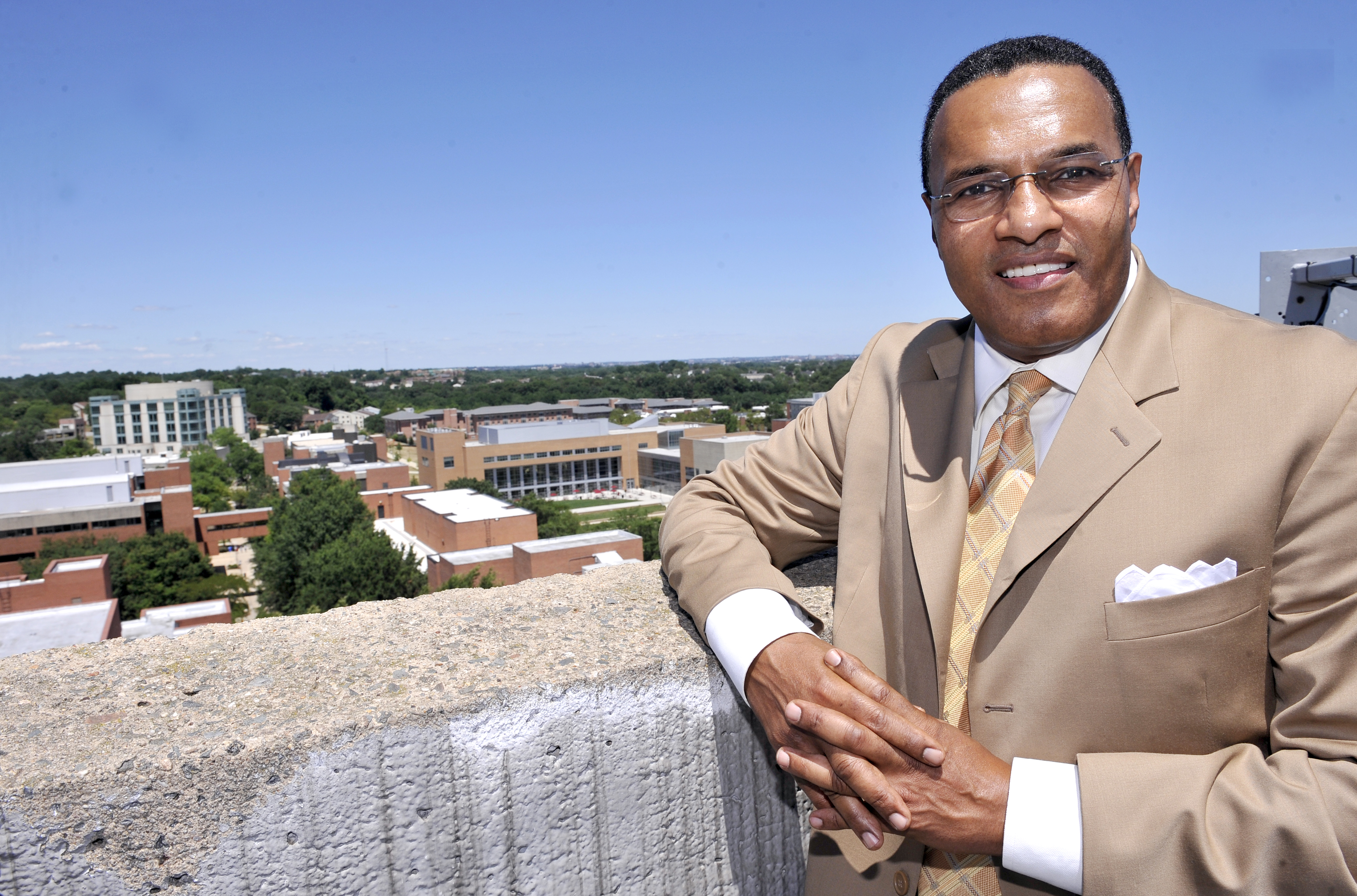
“As soon as there’s pressure, people will throw a president under the bus,” says Freeman A. Hrabowski III, who led the University of Maryland at Baltimore County for 30 years.
Freeman A. Hrabowski III, who was president of the University of Maryland at Baltimore County for 30 years and now advises presidents across the country, said there are 20 presidencies open at historically Black colleges and universities. “I can think of maybe 10 presidents who have lost jobs in the last few months,” he said.
Boards and universities need to work to have successful presidencies, Hrabowski said. People take the jobs to inspire others to learn and think, not to be political pawns, he said.
“As soon as there’s pressure, people will throw a president under the bus,” he said. Sometimes the faculty goes after the president, “or the board is scared, and they just say, ‘Let’s fire the president.’ We do that in a heartbeat.”
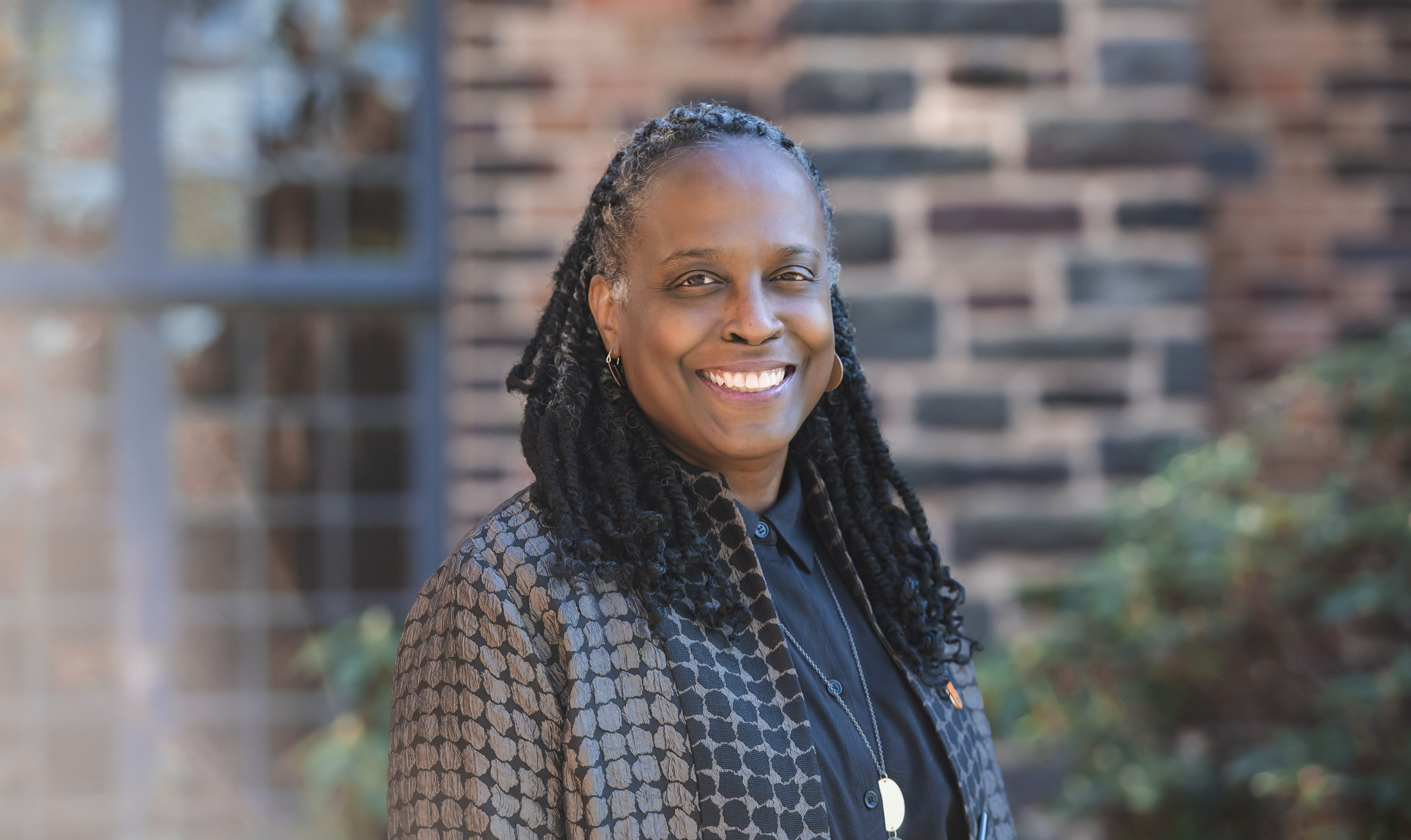
Robin Holmes-Sullivan, the president of Lewis & Clark College in Portland, Ore., since 2022, says she’s disappointed to read about the disparaging views some people have of higher education.
In 2005, Robin Holmes-Sullivan was working in higher education and dreaming of becoming a college president. During a fellowship she shadowed the chancellor of the University of California at Berkeley and studied higher education models in the United Kingdom and South Africa.
At the end, she had learned something, she said: “It would be crazy to be a president!
“The job was too perilous, too impossible, and too unforgiving,” she wrote in an email.
Holmes-Sullivan became a leader in student affairs, instead, at the universities of Oregon and California and Lewis & Clark College — jobs she described as the nexus of chaos and pure joy. When the top job opened at Lewis & Clark, she finally felt prepared.
As president of the Portland, Ore., college since 2022, Holmes-Sullivan is mostly excited about the role. But she also is sometimes disappointed to read about the disparaging views some people have of higher education. The institutions have “perhaps taken for granted that the public will always understand the return on investment of a higher education degree and the importance education plays in our democracy,” she said. “That disconnect continues to worry me.”
Tanuja Singh, president of the University of Indianapolis, said a colleague describes the shift in higher education as a move from ivory towers to glass houses. That’s part of a broader cultural change: People make judgments on people and ideas and outcomes so quickly, she said. “We as a society need to be asking more thoughtful, well-intentioned questions.”
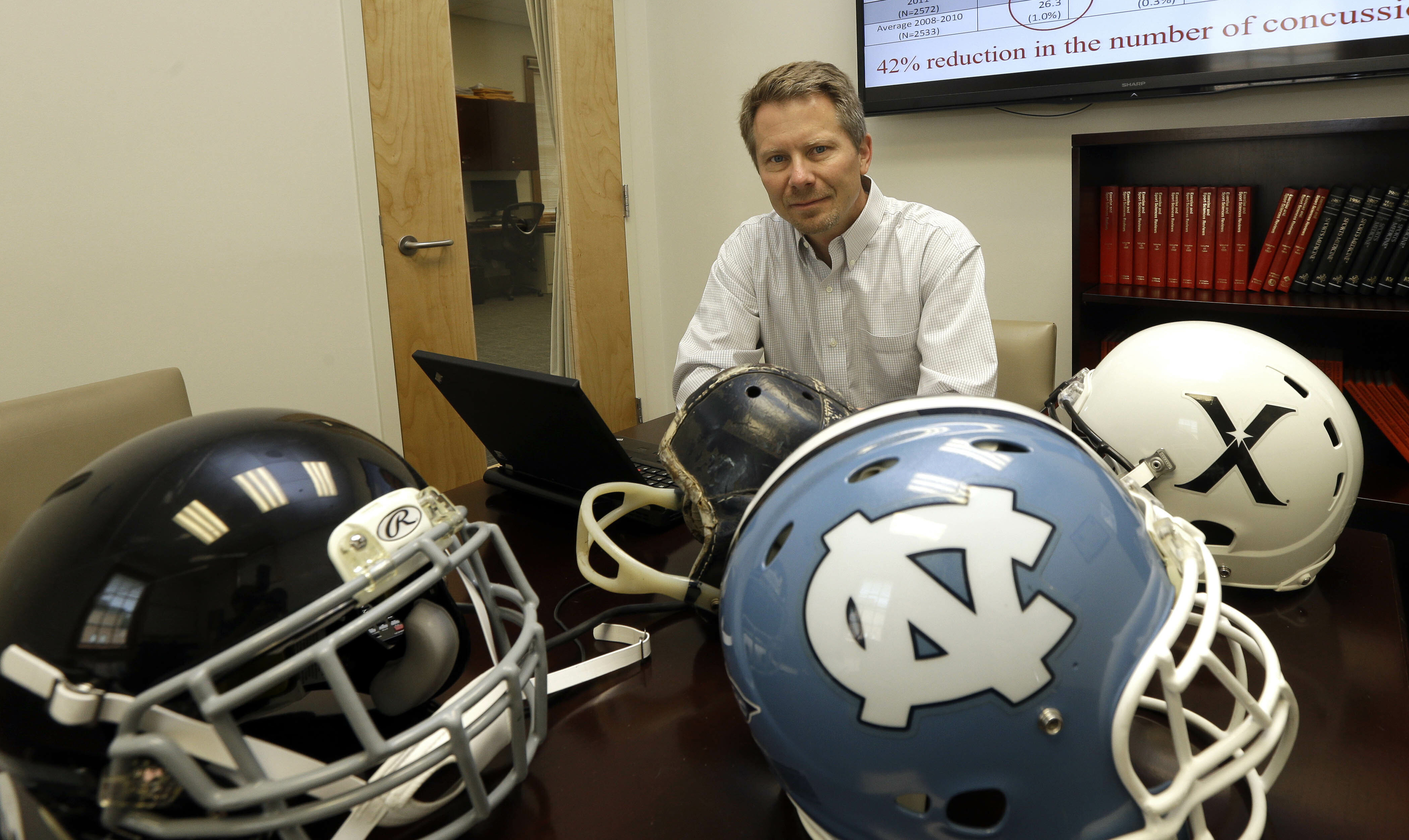
Kevin Guskiewicz, shown here in 2015, was named president of Michigan State University on Friday.
At UNC, Guskiewicz took office amid a defining rupture at the university: His predecessor, Carol Folt, made national headlines after she ordered the removal of remnants of a Confederate statue on campus, despite the sentiments of the panel that oversees the state’s public universities, and resigned. The board hurried her out the door and ushered him in. His tenure saw pandemic shutdowns to conflicts over race, political scuffles with governing boards over hiring and the fatal shooting of a professor that locked down campus last semester.
Holden Thorp, a former UNC chancellor who is now the editor in chief of the Science Family of Journals, said the university’s board of trustees had surprised Guskiewicz at times, such as a vote to accelerate creation of a new school — which the board’s chairman at the time told conservative media would help balance out the university’s left-leaning faculty.
Guskiewicz acknowledged mistakes but said he was proud of accomplishments such as meeting the challenge of the pandemic, implementing a new curriculum and successfully completing a capital campaign that raised more than $5 billion, a large chunk of which is slated for student scholarships and fellowships to make the state flagship school more affordable.
His next role doesn’t look easy. Michigan State is still recovering from a shooting on campus last year that killed three students and injured five. There is lasting fallout from a sexual abuse scandal, and multiple leadership controversies.
Turnover has been startling in recent years. In 2018, Lou Anna K. Simon resigned amid anger over Larry Nassar, a former university and USA Gymnastics doctor who was sentenced to decades in prison after scores of women testified about sexual abuse. Less than a year later, an interim president resigned after he said some of those victims were enjoying the spotlight.
The board at Michigan State has admitted to struggles. But Guskiewicz said the eight-member elected board there is very different from the system he is leaving. In North Carolina, public universities are heavily influenced by the state legislature, and he answered to 15 university trustees and 24 members of the state system’s board of governors.
The Michigan State board has been working to improve, he said. “We have an agreement about what the roles of the president are relative to the roles of the board,” he said, “and I’m confident we’re going to work well together.”
Guskiewicz, a prominent neuroscientist awarded a MacArthur Fellowship for his work preventing and treating sports-related concussions, said he loves the mission of leading a university, serving the public good through teaching and research. The job is challenging, he said, but can be very rewarding.
“I’ll be a better president in two months from now with Michigan State than I was a chancellor here five years ago when I started,” he said, “because I’ve learned and I’ve been able to navigate some of those challenges.”
On the happiness metric, Guskiewicz said, “I’d like to hope I can get that up to 80-80.”
News Related-
Google Pixel 8 Pro Review: Is this the best Android phone of 2023?
-
Namwater Dam Bulletin on Monday 27 November 2023
-
Dr Yunus appointed chair of Moscow Financial University's international advisory board
-
Victory over Nigeria puts Uganda on the brink
-
BoG holds policy rate at 30%, tightens liquidity measures
-
When sea levels rise, so does your rent
-
American International School CEO honoured as ‘Icon of Inspiration and Impact’
-
Sierra Leone prison breaks co-ordinated - minister
-
Address the rise of single parenthood
-
Hyundai Chief Picked as Auto Industry Leader of the Year
-
Unmarried People Under 35 Outnumber Married Ones
-
European interior ministers in Hungary to discuss migration
-
Japan on the watch for unlicensed taxis around Narita airport amid foreign tourism spike
-
ECOWAS to send high-powered delegation on solidarity visit to Sierra Leone
